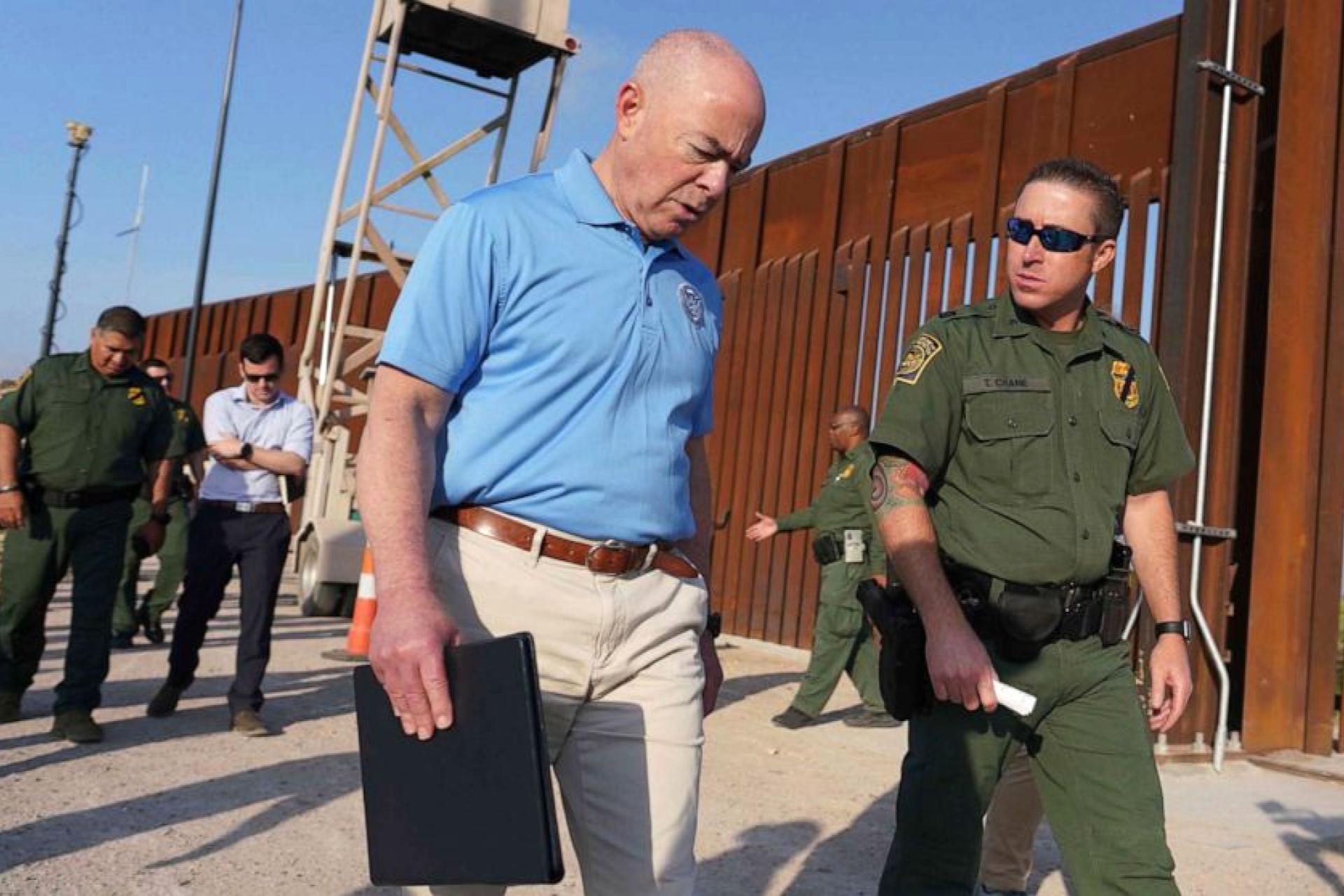HLS.Today – Article 42 PUBLIC HEALTH is composed of five volumes. The parts in these volumes are arranged in the following order: Parts 1–399, parts 400–413, parts 414– 429, parts 430–481, and part 482 to end. The first volume (parts 1–399) contains current regulations issued under chapter I—Public Health Service (HHS). The second, third, and fourth volumes (parts 400–413, parts 414–429, and parts 430–481) include regulations issued under chapter IV—Centers for Medicare & Medicaid Services (HHS) and the fifth volume (part 482 to end) contains the remaining regulations in chapter IV and the regulations issued under chapter V by the Office of Inspector General-Health Care (HHS). The contents of these volumes represent all current regulations codified under this title of the CFR as of October 1, 2020. For this volume, Michele Bugenhagen was Chief Editor. The Code of Federal Regulations publication program is under the direction of John Hyrum Martinez, assisted by Stephen J. Frattini.
Statement by the Department of Homeland Security on Supreme Court Title 42 Order
As required by today’s Supreme Court order, the Title 42 public health order will remain in effect and individuals who attempt to enter the United States unlawfully will continue to be expelled to Mexico or their home country.
People should not listen to the lies of smugglers who take advantage of vulnerable migrants, putting lives at risk. The border is not open, and we will continue to fully enforce our immigration laws.
We will continue to manage the border, but we do so within the constraints of a decades-old immigration system that everyone agrees is broken. We need Congress to pass the comprehensive immigration reform legislation President Biden proposed the day he took office.
Title 42, United States Code, Section 290dd–2(g) authorizes the Secretary to prescribe regulations. Such regulations may contain such definitions, and may provide for such safeguards and procedures, including procedures and criteria for the issuance and scope of orders, as in the judgment of the Secretary are necessary or proper to effectuate the purposes of this statute, to prevent circumvention or evasion thereof, or to facilitate compliance therewith.
- 2.2 Purpose and effect. (a) Purpose. Pursuant to 42 U.S.C. 290dd–2(g), the regulations in this part impose restrictions upon the disclosure and use of substance use disorder patient records which are maintained in connection with the performance of any part 2 program. The regulations in this part include the following subparts: (1) Subpart B of this part: General Provisions, including definitions, applicability, and general restrictions; (2) Subpart C of this part: Disclosures with Patient Consent, including disclosures which require patient consent and the consent form requirements; (3) Subpart D of this part: Disclosures without Patient Consent, including disclosures which do not require patient consent or an authorizing court order; and (4) Subpart E of this part: Court Orders Authorizing Disclosure and Use, including disclosures and uses of patient records which may be made with an authorizing court order and the procedures and criteria for the entry and scope of those orders. (b) Effect. (1) The regulations in this part prohibit the disclosure and use of patient records unless certain circumstances exist. If any circumstance exists under which disclosure is permitted, that circumstance acts to remove the prohibition on disclosure but it does not compel disclosure. Thus, the regulations do not require disclosure under any circumstances. (2) The regulations in this part are not intended to direct the manner in which substantive functions such as research, treatment, and evaluation are carried out. They are intended to ensure that a patient receiving treatment for a substance use disorder in a part 2 program is not made more vulnerable by reason of the availability of their patient record than an individual with a substance use disorder who does not seek treatment. (3) Because there is a criminal penalty for violating the regulations, they are to be construed strictly in favor of the potential violator in the same manner as a criminal statute (see M. Kraus & Brothers v. United States, 327 U.S. 614, 621–22, 66 S. Ct. 705, 707–08 (1946)). § 2.3 Criminal penalty for violation
Physicians for Human Rights take on Article 42
Early in the pandemic, the Trump administration exploited the emergency to completely close U.S. doors to asylum seekers at the border, while continuing to allow many other, non-asylum-seeking travelers across. On March 20, 2020, the CDC issued an order citing section 265 of U.S. Code Title 42 (U.S. health law), allowing the U.S. federal government to immediately turn away and expel people arriving at the border seeking asylum protection. Such actions constitute violations of U.S. and international law. The order, which can be rescinded at any time, has been used by the Department of Homeland Security to carry out more than 750,000 expulsions and to essentially eliminate asylum at the border, resulting in dire humanitarian consequences, such as the severe overcrowding of families in migrant shelters and encampments in northern Mexico.
There is no public health rationale to categorically exclude asylum seekers while millions of other travelers cross the border without testing or contact tracing.
The Title 42 order is not based on public health rationale or data. It was implemented despite objections from senior CDC medical experts and it has been widely criticized by public health and medical experts, who state that the order has no scientific basis as a public health measure. International borders remain largely open to other travelers. People fleeing persecution are protected under U.S. and international law, and the United Nations Refugee Agency (UNHCR) has confirmed that countries must not deny entry or discriminate against asylum seekers solely because of the COVID-19 pandemic.
However, in spite of promising to bring humanity to the immigration system, President Biden has yet to repeal the Title 42 order; on May 19, 2020, it was extended indefinitely, with the CDC director stating the order will continue “until I determine that the danger of further introduction of COVID-19 into the United States has ceased to be a serious danger to the public health, and continuation of the Order is no longer necessary to protect the public health.” More than 70 million pedestrians and vehicle passengers were permitted to enter the United States through ports of entry on the U.S.-Mexico border from April to December 2020 without testing or tracing, while a much smaller number of asylum seekers have not even had the chance to have their case heard.
Banning only asylum seekers asking for protection in the United States is discriminatory, racist, and puts thousands of lives at risk.
USA SUPREME COURT ARIZONA, ET AL. v. ALEJANDRO MAYORKAS, SEC. OF HOMELAND SECURITY
The application for stay pending certiorari presented toTHE CHIEF JUSTICE and by him referred to the Court is granted. The November 15, 2022 order of the United States District Court for the District of Columbia, case No. 1:21– cv–00100, is hereby stayed. Applicants suggested thisCourt treat the application as a petition for a writ of certiorari; doing so, the petition is granted. The parties are directed to brief and argue the following question: Whether the State applicants may intervene to challenge the DistrictCourt’s summary judgment order.
This stay precludes giving effect to the District Court order setting aside and vacating the Title 42 policy; the state itself does not prevent the federal government from taking any action with respect to that policy. The Court’s review on certiorari is limited to the question of intervention. While the underlying merits of the District Court’s summary judgment order are pertinent to that analysis, the Court does not grant review of those merits, which have not yet been addressed by the Court of Appeals.
The Clerk is directed to establish a briefing schedule that will allow the case to be argued in the February 2023 argument session. The stay shall terminate upon the sending down of the judgment of this Court. The order heretofore entered by THE CHIEF JUSTICE is vacated.
JUSTICE SOTOMAYOR and JUSTICE KAGAN would deny the application.
JUSTICE GORSUCH, with whom JUSTICE JACKSON joins, dissenting.
From March 2020 to April 2022, the Centers for Disease Control and Prevention responded to the COVID–19 pandemic by issuing a series of emergency decrees. Those decrees—often called “Title 42 orders”—severely restricted immigration to this country on the ground that it posed a “serious danger” of “introduc[ing]” a “communicable disease.” 58 Stat. 704, 42 U. S. C. §265. Fast forward to a few weeks ago. A district court held that the Title 42 orders were arbitrary and capricious, vacated them, and enjoined their operation. On appeal, Arizona and certain other States moved to intervene to challenge the district court’s ruling, arguing that the federal government would not defend the Title 42 orders as vigorously as they might. The
- C. Circuit denied the States’ motion. In response, the States have now come to this Court seeking two things. First, the States ask us to grant expedited review of the
- C. Circuit’s intervention ruling. Second, the States ask us to stay the district court’s judgment while we review the
- C. Circuit’s intervention ruling. This stay would effectively require the federal government to continue enforcing the Title 42 orders indefinitely. Today, the Court obliges both requests. Respectfully, I believe these decisions are unwise.
Reasonable minds can disagree about the merits of the:
- C. Circuit’s intervention ruling. But that case-specific decision is not of special importance in its own right and would not normally warrant expedited review. The D. C. Circuit’s intervention ruling takes on whatever salience it has only because of its presence in a larger underlying dispute about the Title 42 orders. And on that score, it is unclear what we might accomplish. Even if at the end of it all we find that the States are permitted to intervene, and even if the States manage on remand to demonstrate that the Title 42 orders were lawfully adopted, the emergency on which those orders were premised has long since lapsed. In April 2022, the federal government terminated the Title 42 orders after determining that emergency immigration restrictions were no longer necessary or appropriate to address COVID–19. 87 Fed. Reg. 19944. The States may question whether the government followed the right administrative steps before issuing this decision (an issue on which I express no view). But they do not seriously dispute that the public-health justification undergirding the Title 42 orders has lapsed. And it is hardly obvious why we should rush in to review a ruling on a motion to intervene in a case concerning emergency decrees that have outlived their shelf life.
The only plausible reason for stepping in at this stage that I can discern has to do with the States’ second request. The States contend that they face an immigration crisis at the border and policymakers have failed to agree on adequate measures to address it. The only means left to mitigate the crisis, the States suggest, is an order from this Court directing the federal government to continue its COVID-era Title 42 policies as long as possible—at the very least during the pendency of our review. Today, the Court Supplies just such an order. For my part, I do not discount the States’ concerns. Even the federal government acknowledges “that the end of the Title 42 orders will likely have disruptive consequences.” Brief in Opposition for Federal Respondents 6. But the current border crisis is not a COVID crisis. And courts should not be in the business of perpetuating administrative edicts designed for one emergency only because elected officials have failed to address a different emergency. We are a court of law, not policymakers of last resort.
HLS.Today - PHR-Title-42-Order-Fact-Sheet
HLS.Today - Petition ARIZONA ET AL. v. ALEJANDRO MAYORKAS 22a544_n758
HLS.Today - Code of Federal Regulations - CFR-2020-title42-vol1
HLS.Today Source: DHS.GOV








